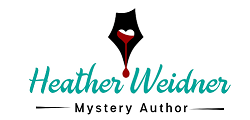Revisions, Ugh! Tips for Authors
/To me, the revising and self-editing part of the writing process is the hardest. One big lesson I learned early on was JUST write the first draft. My first book took so long because I kept stopping to revise. Now, after I outline the story, I write the first draft. Here’s my process. There is no one, right way. You need to find what works for you.
Outline the book. This keeps me focused, and I don’t get stuck in the saggy middle. It also helps me write my synopsis later.
Write the draft. No editing. No proofreading. BIFOK (Butt in Chair; Fingers on Keyboard)
Print a copy and do a read through. This is usually when I go back and add description to hit my word count. (I am notorious for coming in under my desired count.)
Make all of the edits.
I usually print the manuscript again and go through it a few more times. Sometimes, I’ll put it down for a few weeks and then go back to it.
After I think it’s “ready,” I submit it to my critique group and writing partners for more revisions and feedback.
I make the needed edits.
Then I send it to a paid editor for line edits and copy editing.
Yep, you guessed it. Make the changes.
I print the manuscript again and proofread.
Sometimes, I have a beta reader or two read it like a book and provide feedback. My critique group meets monthly, and we ready only about 50 pages at a time.
Then I send it to my agent. Many times, she provides edits.
When it goes to the publisher, there two, and sometimes three rounds of edits and changes.
A lot of time and effort goes into the writing process. My critique group, beta readers, agent, and editors are invaluable! For me, the revision stage often takes longer than the research/writing part.
Happy writing!













